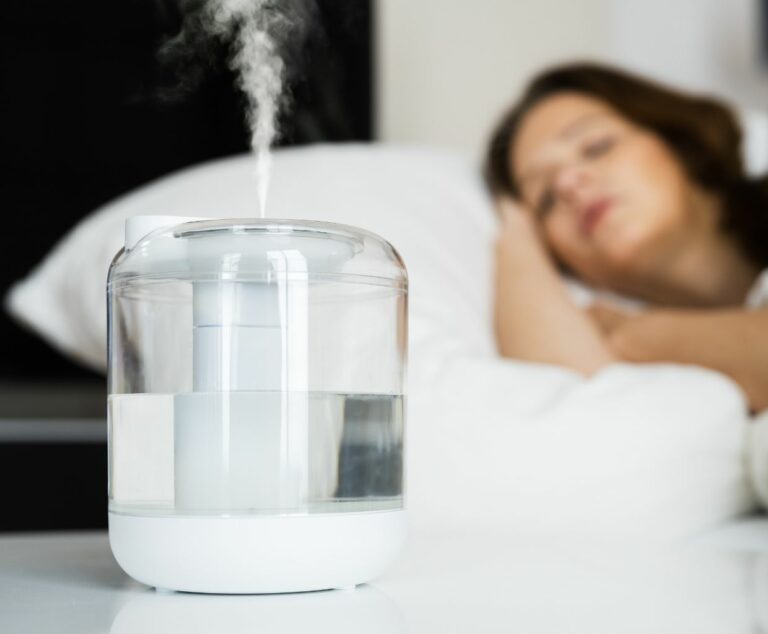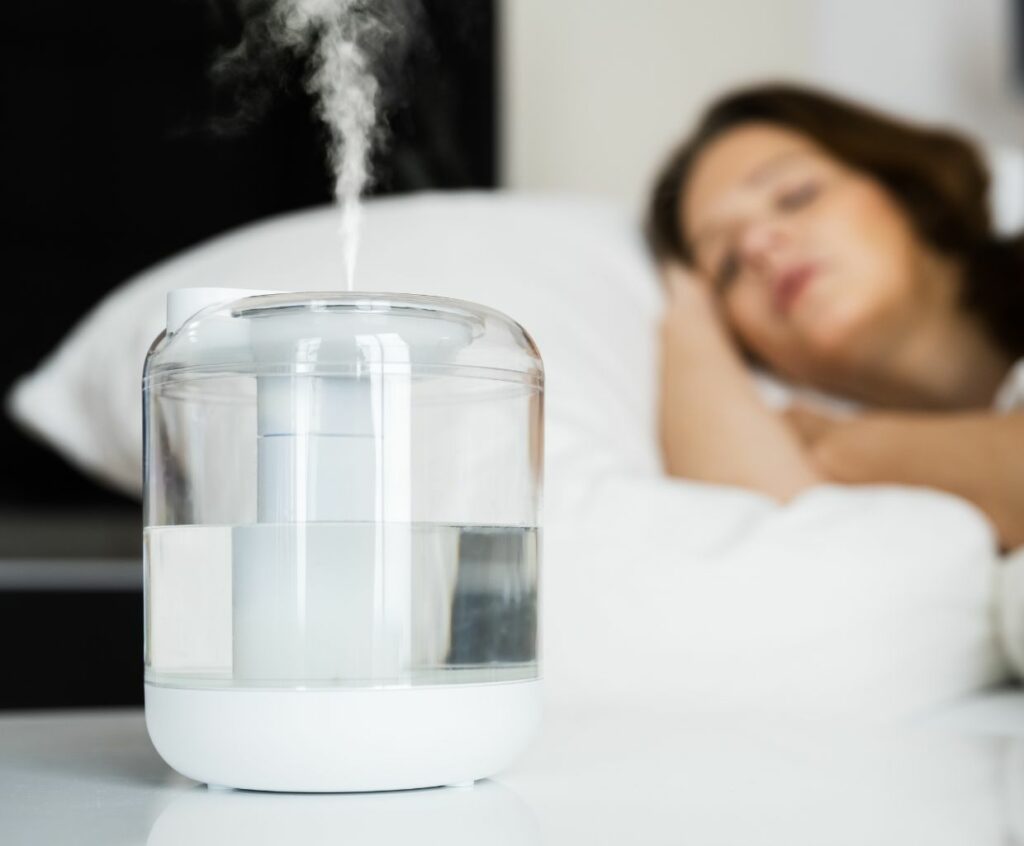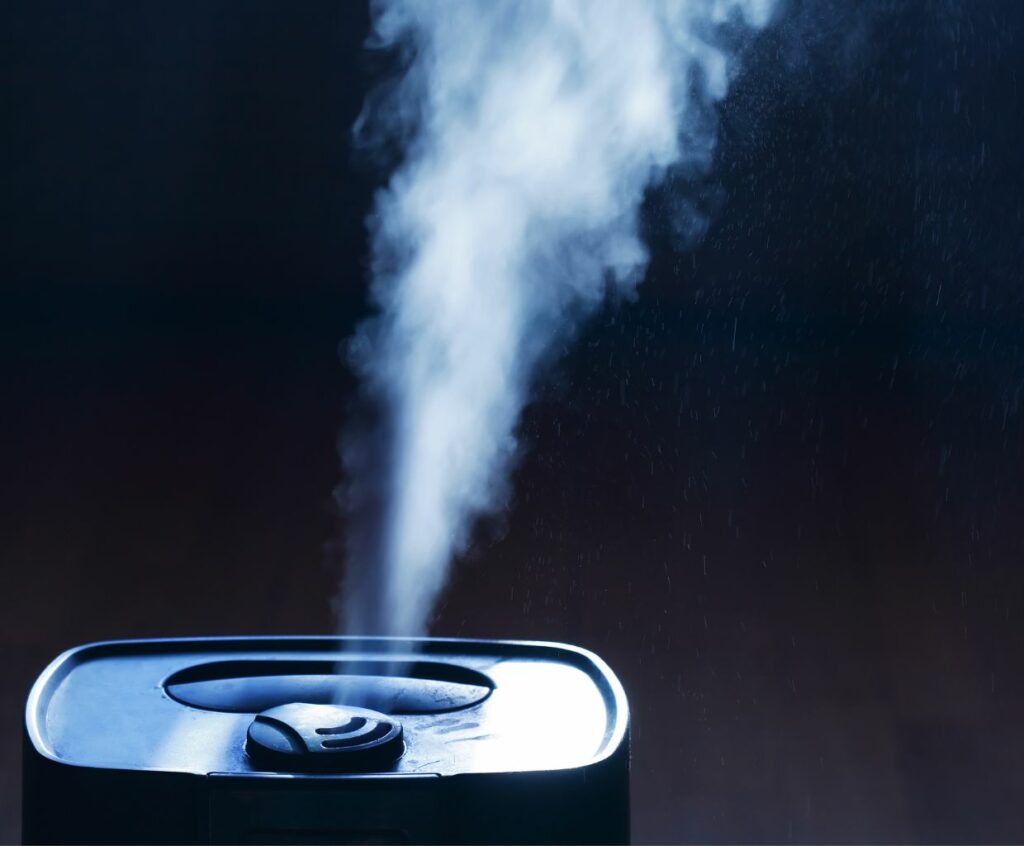If you’ve ever been kept awake by the sound of snoring, you know how frustrating it is. Not only can it keep you up at night, but it can also be downright dangerous. Snoring signifies that your breathing may be obstructed while sleeping, leading to high blood pressure and heart problems.
But what if there was something simple you could do to help? Do Humidifiers Help With Snoring? Humidifiers have been suggested as a possible solution for snoring and are often recommended by doctors and sleep experts. But does it work? Let’s find out.
Content Summary
What causes snoring?
The vibration of soft tissues in the throat and nose causes snoring. The vibration is caused by air passing through the throat, which leads to snoring.
The most common reasons for snoring are:
Obstructive Sleep Apnea
This type of sleep apnea causes you to stop breathing periodically during your sleep cycle. In adults, it usually happens when they fall asleep on their backs or sides. It can also be caused by an enlarged tongue or excessive weight gain that presses against your throat while you sleep (in overweight people).
Central Sleep Apnea
This type of sleep apnea prevents you from breathing effectively throughout all stages of sleep, including REM phases, where we need to stay oxygenated enough so we don’t feel tired when we wake up in the morning (which may result in feeling more tired throughout the day).
Allergic Rhinitis
Inflammation inside your nasal cavity from allergies may cause congestion similar enough that both types of allergies could lead up towards having more trouble breathing as well as potentially causing mouth noises rather than just loud snores because there would be more mucus production due to clogged passages leading into nostrils/mouths being clogged up too much with phlegm! That’s why some doctors recommend using humidifiers if treating these kinds of problems– they might help improve respiration rates while also reducing mucus buildup within specific areas such as those found near bronchi inside lungs.”
How do humidifiers work?
The most common type of humidifier is the evaporative humidifier. These work by drawing in air and passing it over a wet wick or pad, releasing water vapor into the air. This can help with congestion, dry skin, eyes, sinuses (especially during colds), and asthma symptoms.
However, other types of humidifiers exist as well. For instance: ultrasonic humidifiers use sonic vibrations to turn water into a cool mist that’s dispersed into the room; warm-mist humidifiers boil water and disperse steam into your home; cool-mist units do not boil their water but instead use evaporation to create a fine mist; nebulizer devices contain medicine that turns into vapor when mixed with water, so they’re used primarily by people who are ill or have breathing problems like COPD (chronic obstructive pulmonary disease).
Some of the benefits of humidifiers
Here we listed the benefits of using a humidifier in your home.
Humidifiers can help with allergies
The air in your home can be dry, especially during winter. This dryness can irritate your nose and throat, causing you to have a stuffy nose or cough more often than usual. Humidifiers can help relieve these symptoms by adding moisture back into the air.
Humidifiers can help with dry skin
Dry air can leave your skin feeling dry, itchy, and flaky. If you have a humidifier, you can use it to add moisture to your home’s air. This will help relieve dry skin and keep it from getting worse. Humidifiers can help with congestion or breathing problems.
You may notice that using a humidifier helps relieve congestion caused by colds and allergies. Adding humidity to the air makes it easier for mucus membranes (like those in our sinuses) to move around without drying out too much.
Humidifiers can help with dry sinuses, throat, and nose
If you have a humidifier, you can use it to add humidity to your home. This will make it easier for mucus membranes (like those in our sinuses) to move around without drying out too much.
Humidifiers can help with dry sinuses, throat, and nose. Humidifiers can help with sleep problems caused by allergies or asthma.
- Read Also: Are Humidifiers Safe For Dogs?
Do humidifiers help with snoring?
Can a humidifier help with snoring? The short answer is that it depends on the individual. A humidifier can help some people breathe better, which may affect their snoring. If you suffer from nasal congestion or dry mouth, having a humidifier in your room may benefit you. It will make breathing easier and thus decrease the chance of snoring.
If you have a dry nose, nasal congestion, and dry mouth, then your best bet is to invest in a humidifier and an air filter for your home or bedroom. This way, you can ensure that any air breathed by those around you is clean enough for everyone’s health.
More tips to help with snoring
There are a few ways to help yourself if you snore. First, use a humidifier in your bedroom and ensure it’s at least 60% humidity so the air isn’t too dry. If you’re going to be drinking alcohol before bedtime, avoid hard liquor because it can make you more dehydrated (which can lead to snoring).
Next, eat less salt during dinner and avoid salty foods before bed because they increase fluid retention in the body—extra fluid leads to more snoring! Finally, try sleeping on your side instead of on your back; this also helps keep nasal passages open and airways clear while we sleep.
If these tips don’t work for you or aren’t practical for whatever reason (like if there isn’t enough room in the bedroom), consider using a chin strap or nasal strips at night when sleeping flat on your back. It allows us to get the necessary oxygen flow needed for a restful sleep without interruptions from snoring noises coming out of our noses due to congestion problems caused by mucus buildup during the REM cycle. Not being able to breathe correctly will adversely affect both energy levels throughout the daytime and the overall quality of life to mental stress.
Stress
It is caused by being unable to think clearly due to constant fatigue caused by the lack of oxygen taken into the body through the nostrils when breathing sincerely through the nose rather than the mouth. That can eventually lead to developing chronic fatigue syndrome.
If left untreated long enough – months, years, even decades, depending on how often one has problems with clogged sinuses, it can cause frequent bouts, acute episodes, sneezing, runny nose, coughs, sore throat, pain, etcetera. That could eventually cause serious medical complications such as pneumonia, heart attack, stroke, cancer, and death. Even though those possibilities might seem unlikely right now, given frequency occurrence rate within a population is significant.
But do humidifiers help with snoring?
Humidifiers are often recommended as a way to help people who snore. They’re supposed to improve sleep quality by making the air moister, which might keep the throat from drying out and causing snoring. But does it work?
Unfortunately, there’s no clear evidence that humidifiers help with snoring. Some studies show that they might make things worse! Some people think adding moisture to their nasal passages could help them breathe better during sleep and prevent them from waking up gasping for air in the middle of the night—but it hasn’t been proven yet.
There are plenty of other things you can try instead: changing your sleeping position or using nasal strips (or even an oral device) may reduce your snoring levels without having any adverse side effects on how well-rested you feel when you wake up in the morning.
Do Humidifiers Help With Snoring? – Conclusion
Snoring is a severe problem for many people, and it can be hard to find solutions. However, if you’re looking for something that can help with the problem of snoring or other sleep issues, there are some options if you’re interested in trying humidifiers to get better sleep and improve your health, research before making any decisions!



